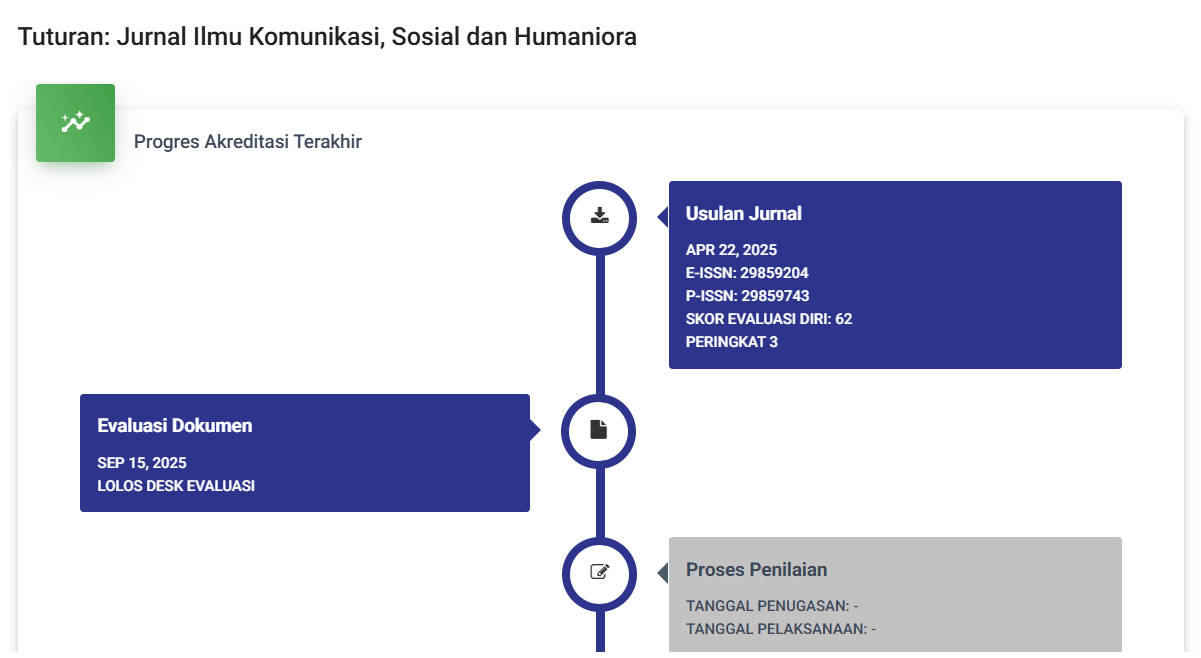Fenomena Job Hopping Pada Gen Z Dalam Bidang Komunikasi
DOI:
https://doi.org/10.47861/tuturan.v2i2.923Keywords:
Gen Z, Job Hopping, Motives, Expectations, ImplicationsAbstract
This research explores the phenomenon of job hopping among Gen Z in the field of communication with the aim of identifying the motives behind Gen Z's job hopping and the implications experienced by Gen Z after job hopping. The study employs a qualitative approach with the phenomenological research method. Data were collected through in-depth interviews with Gen Z individuals who have experience in job hopping in the field of communication. Additionally, interviews with human resource management experts were conducted, and literature studies were utilized to ensure data validity. The results of this study indicate that Gen Z individuals have different motives for job hopping to meet their expectations while accepting the implications of job hopping. These findings were also analyzed using Herzberg's Motivation Theory to determine the motives based on Gen Z's experiences in job hopping.
References
Badan Pusat Statistik. (2021, January 21). Badan Pusat Statistik. Demakkab.bps.go.id. https://demakkab.bps.go.id/news/2021/01/21/67/hasil-sensus-penduduk-2020.html
Creswell, John W. Studyguide for Research Design : Qualitative, Quantitative, and Mixed Methods Approaches. United Kingdom, Content Technologies, 2014.
Johari, N. A., & Rasli, M. A. M. (2017). Intrinsic and Extrinsic Factors of Job Hopping: A Perspective from Final Year Business Student. World Applied Sciences Journal, 35(11).
Judge, T. A., & Watanabe, S. (1995). Is the Past Prologue?: A Test of Ghiselli’s Hobo Syndrome. Journal of Management, 21(2), 211–229. https://doi.org/10.1177/014920639502100203
McKinsey & Company. “How Does Gen Z See Its Place in the Working World? With Trepidation | McKinsey.” Www.mckinsey.com, 19 Oct. 2022, www.mckinsey.com/featured-insights/sustainable-inclusive-growth/future-of-america/how-does-gen-z-see-its-place-in-the-working-world-with-trepidation.
Pranaya, D. (2014). Job Hopping an Analytical Review. IMPACT: International Journal of Research in Business Management, 2(4).
Sugiyono. (2018). Metode Penelitian Kuantitatif, Kualitatif, dan R7D. Bandung: Alfabeta.
Szczepanek, A. (2023a). 83% of Generation Z workers are job hoppers (2023 Report). ResumeLab. https://resumelab.com/career-advice/generation-z-and-work
Wedadjati, R. S. (2022). Evaluasi Kepuasan Karyawan Berbasis Herzberg’s Two Factors Motivation Theory. Journal Management, Business, and Accounting, 21(3).
Yudha, C. B. (2019). Professionalism of Lecturersto Improve Character of the Student Teachers of the Millennial Era Disrupsi. Social, Humanities, and Educational Studies (SHEs): Conference Series, 1(2), 83.
Downloads
Published
How to Cite
Issue
Section
License
Copyright (c) 2024 TUTURAN: Jurnal Ilmu Komunikasi, Sosial dan Humaniora

This work is licensed under a Creative Commons Attribution 4.0 International License.








